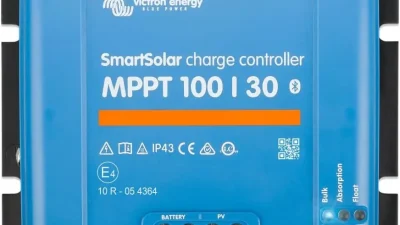The solar energy industry is booming as demand for clean, sustainable power solutions intensifies worldwide. If you are passionate about renewable energy and want to be part of the transition to a greener economy, now is the perfect time to build a career in solar. Understanding the right educational path and certifications can significantly boost your chances of success. In this comprehensive guide, you will discover how to start a career in solar energy, what education and certifications are essential, and how you can stand out in this dynamic industry.
Table of Contents
- Why Solar Energy Careers Are Growing
- Key Solar Career Pathways
- Educational Requirements for Solar Energy Jobs
- Top Solar Energy Certifications
- Gaining Hands On Experience in Solar Energy
- Finding Your First Solar Energy Job
- Industry Trends and Career Growth
- Conclusion and Next Steps
Why Solar Energy Careers Are Growing
Solar energy is one of the fastest growing sectors within the clean technology industry. The shift toward sustainable energy has created an ongoing demand for skilled professionals. Several factors drive this expansion, making it an attractive career choice:
- Government Incentives: Tax credits and government programs encourage solar adoption for both businesses and homeowners, which increases the need for solar installations.
- Cost Reduction: The decreasing cost of photovoltaic panels and associated technology makes solar solutions more accessible, resulting in more widespread deployment.
- Corporate Sustainability: Many organizations now have sustainability targets, relying on solar as a key strategy to reduce carbon emissions.
- Technological Innovations: Advances in solar technology and energy storage have broadened the roles available within the sector.
This surge in adoption is creating ample opportunities for people with the right education and certifications to start a rewarding and well paid career.
Key Solar Career Pathways
The solar industry offers a vast array of job options suited to different interests and skill sets. Whether you prefer technical work in the field or engineering in an office, there are several clear career paths in solar energy:
Solar Photovoltaic Installer
These professionals install and maintain solar panel systems on rooftops and other structures. PV installers are in high demand and often work outdoors at various locations. This role typically involves mechanical and electrical skills, as well as knowledge of safety codes.
Solar Design Engineer
Solar design engineers calculate, design, and optimize solar power systems. They select appropriate technology and ensure installations comply with regulations. This position often requires a background in engineering or physics and good problem solving abilities.
Solar Sales Consultant
Sales consultants in solar educate customers, calculate potential savings, provide quotes, and close contracts. Strong communication skills and product knowledge are essential for this customer facing role.
Project Manager
Project managers oversee solar installations from inception to completion. They coordinate teams, ensure timelines are met, and maintain budgets. This pathway is ideal for those skilled in leadership, logistics, and organization.
Other Specialized Roles
- Solar manufacturing specialist
- Research and development scientist
- Solar policy analyst or advocate
- Operations and maintenance technician
Choosing a career path will help determine the educational focus and certifications you will need.
Educational Requirements for Solar Energy Jobs
The solar energy sector welcomes professionals with a wide range of educational backgrounds, but certain qualifications can improve job prospects and career growth. The requirements vary depending on the complexity of the role.
High School Diploma or GED
Some entry level positions, such as solar photovoltaic installer helper, are available to those with a high school diploma or GED. Employers may provide on the job training, but candidates who complete technical courses or apprenticeships can expect to advance more quickly.
Technical or Vocational Training
Completing a certificate or associate degree at a trade school or community college can distinguish candidates. Popular programs include:
- Electrical technology
- Renewable energy technician
- Solar installation and maintenance
- Energy systems technology
These programs blend theory and hands on training, preparing graduates for fieldwork and professional certifications.
Bachelor’s Degree
For higher level positions such as design engineer, project manager, or researcher, a bachelor’s degree in one of the following disciplines is advantageous:
- Electrical engineering
- Mechanical engineering
- Environmental science
- Physics
- Construction management
Many universities offer bachelor’s or even master’s programs with a renewable energy or solar focus, which are especially attractive to employers.
Top Solar Energy Certifications
Certifications are a critical credential in the solar energy field. They validate your skills, demonstrate commitment to the industry, and are often required for certain projects or positions. Top solar energy certifications to consider include:
North American Board of Certified Energy Practitioners (NABCEP)
NABCEP certification is widely regarded as the gold standard in solar. Earning one of their credentials shows employers and clients that you meet high industry standards. Some notable NABCEP certifications are:
- NABCEP PV Associate Ideal for those new to solar, this introductory certification demonstrates fundamental PV knowledge.
- NABCEP PV Installation Professional Suited for experienced installers who design, install, and maintain solar systems. Passing requires both experience and a challenging exam.
- NABCEP Solar Heating Installer Focuses on solar thermal systems used for water or space heating.
Other Respected Solar Certifications
- Electronics Technicians Association (ETA) Photovoltaic Installer This credential validates practical PV installation competence and general electrical skill.
- Solar Energy International (SEI) Certificates SEI offers robust training programs with certifications for residential, commercial, and advanced solar system topics.
- OSHA Safety Certifications Occupational Safety and Health Administration credentials are essential for anyone working in construction or installation roles, assuring solid safety knowledge for working at heights and with electricity.
Achieving recognized certification can lead to higher wages and more job opportunities in today’s competitive job market.
Gaining Hands On Experience in Solar Energy
In addition to classroom learning and certification exam preparation, gaining real world solar experience is essential. Not only does it provide practical insights, but it also makes your resume more compelling.
- Internships: Many solar companies offer paid or unpaid internships that expose students or career changers to various aspects of the business.
- Apprenticeships: Structured apprenticeship programs combine on the job training and classroom instruction, often leading directly to full time positions.
- Entry level Installation Jobs: You can start as an assistant or laborer to learn installation basics under the supervision of skilled professionals.
- Volunteer Work: Nonprofits and community solar initiatives often need hands on support, offering valuable experience for those entering the field.
Documenting every relevant project and building a professional portfolio can enhance your employability as you seek higher positions or specialized roles.
Finding Your First Solar Energy Job
Landing your first solar energy position requires a strategic job search and a strong application. Consider these tips to maximize your success:
Research Employers
Start by researching local and regional companies involved in solar installation, engineering, sales, and manufacturing. Check their careers pages and industry job boards for open positions.
Leverage Industry Networks
Networking is crucial in the solar industry. Attend industry conferences, workshops, and renewable energy expos to meet potential employers and industry experts. Join organizations such as the Solar Energy Industries Association (SEIA) or local renewable energy groups. Participating in these networks can help you learn about job openings, mentorship opportunities, and upcoming trends.
Utilize Job Boards and Resources
Several specialized job boards focus directly on solar and renewable energy roles. Make use of resources like:
- SEIA’s Career Center: Offers updated listings for solar companies nationwide.
- Search “Renewable Energy Jobs”: Covers a wide range of clean energy fields, with many solar specific opportunities.
- Indeed: Well known platform where solar employers regularly post jobs.
- LinkedIn: Keep your profile detailed and up to date; recruiters frequently use this platform to find new talent in solar.
Tailor your resume to highlight any relevant education, hands on training, certifications, and safety credentials. Use keywords from solar job descriptions to increase your chances of passing automated resume screening tools.
Prepare for the Interview
As with any technical field, solar energy employers value applicants who demonstrate both practical skills and a passion for sustainability. Prepare for interviews by being ready to discuss:
- Technical challenges you’ve solved during training, projects, or previous jobs
- Your hands on experience with electrical systems, PV panels, or tools
- Your understanding of solar regulations, codes, and industry standards
- The reasons you want to work in solar and how you see yourself growing in the industry
Industry Trends and Career Growth
Staying aware of the latest industry trends is essential for ongoing success in solar energy. Technological advances, policy changes, and market evolution are shaping the future of solar careers.
- Distributed Solar: Rooftop and community projects are growing, especially as homeowners and small businesses seek energy independence.
- Solar + Storage: The integration of battery storage with PV systems is becoming more popular, creating new roles for storage specialists and electrical engineers.
- Digital Tools: Design and monitoring software, drone inspections, and remote diagnostics are transforming how solar systems are planned and maintained.
- Policy Changes: Changes in incentives, tariffs, or regulations can quickly impact the type and number of jobs available, so staying informed is key.
Solar professionals are building long term careers by expanding their skill set. Gaining additional certifications, learning about data analysis, microgrids, or energy storage can make you more valuable to employers. Never stop learning; continued education is widely regarded as a sign of dedication and ambition in the solar sector.
Conclusion and Next Steps
The path toward a rewarding solar energy career starts with understanding the landscape and making informed choices about education and certifications. With the right foundation whether from technical training, a bachelor’s degree, or professional certifications like NABCEP you can unlock a variety of career opportunities, from hands on fieldwork to engineering or project management roles. Gaining hands on experience through internships, apprenticeships, or volunteer projects will set you apart as a well rounded candidate.
Remember to stay informed about industry trends, seek out networking opportunities, and continue your education throughout your career. As the world continues to embrace clean energy, now is one of the best times to begin or advance your journey in solar. Start researching programs, enroll in a relevant training course, and aim for your first certification to take the first step toward a brighter, more sustainable future in solar energy.





